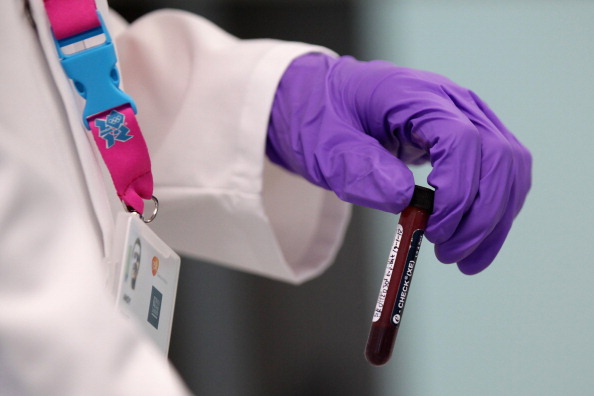Organizations
- POA
- National Federations
- Archery
- Athletics
- Badminton
- Baseball
- Basketball
- Bodybuilding
- Boxing
- Equestrian
- Fencing
- Football
- Golf
- Gymnastics
- Handball
- Hockey
- Ju Jitsu
- Kabaddi
- Karate
- Rowing
- Rugby
- Sailing
- Shooting
- Softball
- Squash
- Swimming
- Table Tennis
- Taekwondo
- Tennis
- Tug of War
- Volleyball
- Weightlifting
- Winter Sports
- Wrestling
- Wushu
- Provincial Olympic Associations
- Punjab
- Sindh
- Khyber Pakhtunkhwa
- Balochistan
- Other Associations
- Islamabad
- Services Organisations
- Pakistan Army
- Pakistan Navy
- Pakistan Air Force
- Pakistan Railways
- Pakistan Police
- WAPDA
- HEC
News > POA
Exclusive: IOC promises "stricter" procedures for ABP testing after missed London 2012 appointments Back To Main
Inside the Games

October 7 - The International Olympic Committee (IOC) has vowed to tighten up testing procedures after a number of competitors at the recent 2012 Olympic Games in London missed blood test appointments without incurring sanctions.
The missed appointments, for blood tests relating to the Athlete Biological Passport (ABP), were disclosed in the recent Independent Observer (IO) report on the London 2012 anti-doping programme and were first reported last month byinsidethegames.
The story aroused much interest, including from Paula Radcliffe, the Marathon world record-holder, who circulated it to her 85,000 plus Twitter followers with the comment, "Totally UNACCEPTABLE".
Asked by insidethegames what was being done to prevent something like this happening again, the IOC replied:
"As mentioned in the IO report, the failure of some athletes to report to the doping control at their assigned times as part of the ABP testing programme was noted by the relevant International Federations [Ifs], which subsequently took alternative measures to control these athletes.
"Based on this first experience with the ABP testing programme in London, the IOC will work in close collaboration with the IFs and the World Anti-Doping Agency [WADA] to apply stricter procedures for the programme at future Olympic Games."

Paula Radcliffe's response on Twitter to the insidethegames story about missed London 2012 ABP blood test appointments.
It is still not clear how many athletes missed their appointments or from which sports.
WADA President John Fahey disclosed just ahead of the Games in July that as many as six sports would be deploying the ABP, which is based on the idea that by monitoring certain biological variables in an athlete over time, unusual variations in those measurements might betray a change in behaviour, such as recourse to doping.
The six sports were understood at the time to be athletics, swimming, cycling, rowing, triathlon and modern pentathlon.
Problems such as these missed London appointments clearly do nothing to boost confidence in the ABP as a weapon in the war against drug cheats.
One Swiss-based blood doping expert told insidethegames this year that the ABP's ability to reveal doping with erythropoietin (EPO) was "virtually zero".
Contact the writer of this story at david.owen@insidethegames.biz
 Pakistan Olympic Association
Pakistan Olympic Association